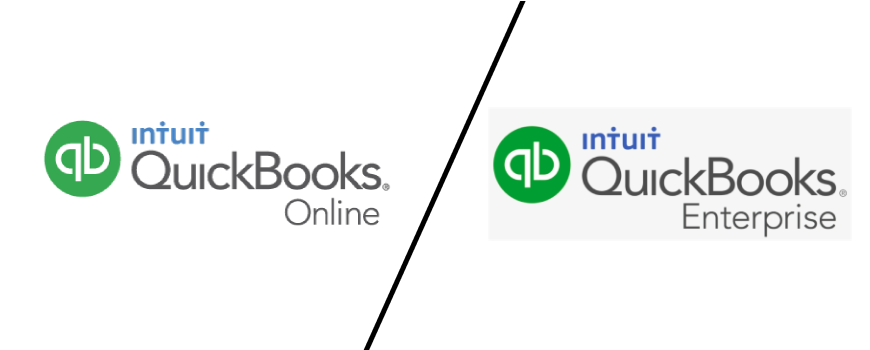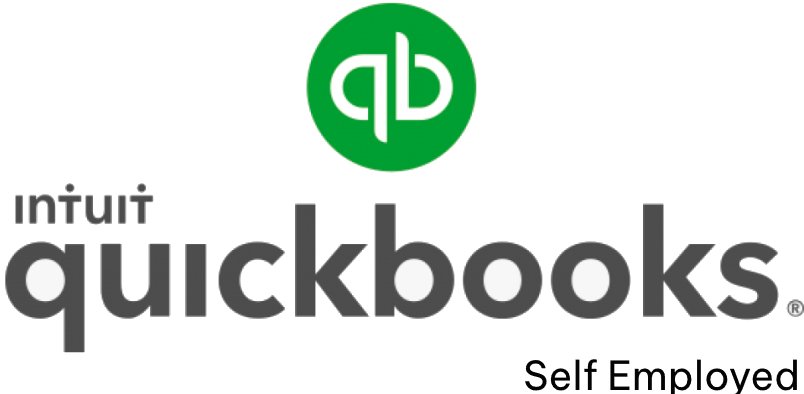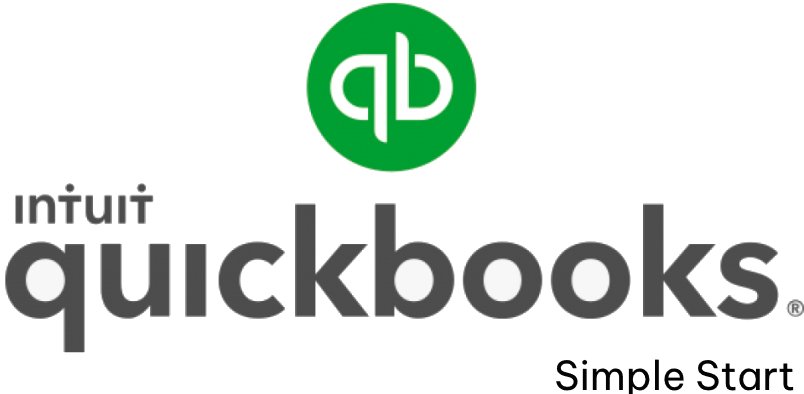For your developing company, are you trying to find the finest accounting software? Determining the best solution can appear challenging with so many possibilities available. All throughout the globe, a variety of companies of all sizes utilize QuickBooks, an appreciated accounting program. Before selecting which of the two versions—QuickBooks Online and Enterprise—would most appropriately meet your requirements, it’s important to grasp their differences. To provide you a thorough understanding of the differences between QuickBooks Online vs Enterprise and help you make a sound choice, we’ll analyse the key features of each in the following article. Now let’s get rolling!

Intro: QuickBooks Online Vs Enterprise
QuickBooks Online
QuickBooks Online is cloud-based software for accounting from Intuit. It has been constructed to support companies of all sizes in administering their financial affairs efficiently. Customers with a connection to the web can access their financial data from anywhere and at any time using QuickBooks Online.
You May Also Compare
Choose what is right for you! Compare QuickBooks Self Employed with QuickBooks Simple Start to keep your business running!
View All FeaturesQuickBooks Enterprise
QuickBooks Enterprise from Intuit is a detailed accounting and the financial oversight application. It was created for larger enterprises and groups with more complicated financial reporting requirements. QuickBooks Enterprise offers extra features and scalability to address the financial needs of midsize to huge companies.
Features: QuickBooks Online Vs Enterprise

| QuickBooks Online | QuickBooks Enterprise |
| Online Invoicing | Industry-Specific Solutions |
| Financial Management | Integration with Third-Party Applications |
| Reporting and Analytics | Customizable Chart of Accounts |
| Multi-User Access and Collaboration | Multiple Company Consolidation |
| Bank Reconciliation |
Comparison: QuickBooks Online Vs Enterprise | ||
| Scalability and Business Size: QuickBooks Online is adaptable and works well for many business sizes. It serves entrepreneurs, startups, and medium in size corporations. Its membership approach lets corporations upgrade as they expand. QuickBooks Enterprise is for mid-sized to big entities with challenging financial reporting requirements. | Pricing and Payment Models: QuickBooks Online charges via membership. Users pay every month or annually, based on their package. This flexible approach avoids high upfront costs. The QuickBooks Enterprise licensing system is conventional. Corporations buy a one-time software agreement with a set number of customers. | Features and Functionality: QuickBooks Online has multiple roles for most SMBs. It has billing, expenses surveillance, basic management of stocks, and reporting on finances functions. QuickBooks Enterprise offers refined reporting, adjustable access rights for users, and handling of stocks not accessible in QuickBooks Online. |
| Accessibility and Platforms: Cloud-based QuickBooks Online is available via internet browsers. Financial data is accessible all over with internet access. Windows users utilise QuickBooks Enterprise as a desktop scheme. It can be hosted on external servers for multi-location accessibility, however its mobility is limited as opposed to QuickBooks Online. | ||
Pros & Cons: QuickBooks Online Vs Enterprise
QuickBooks Online Pros and Cons

Pros | Cons |
| Accessibility and Flexibility: The general simplicity of use of QuickBooks Online is probably one of its greatest strengths. Users can check their financial details from any gadget or phone with a connection to the internet owing to the program’s cloud-based structure. This versatility allows accountants and entrepreneurs to collaborate virtually, operate in actual time, and access critical accounting information while on the go. | Subscription Costs: To use QuickBooks Online’s functionality, users must register for the program and pay an annual or monthly charge. Although membership dues are usually low, they can add up rapidly, particularly for companies that have complicated accounting procedures or a big clientele. Certain organisations have the option to opt for the desktop version of QuickBooks single-payment schedule, which could potentially contribute to subsequent savings in costs. |
| Cost-Effective Solution: Because of its reasonable price levels, QuickBooks Online is an economical option for corporations. Companies can cut costs through variable subscription choices and without having to pay for hardware or setup up front, unlike conventional accounting software. Moreover, QuickBooks Online’s automated functions and efficiency technologies may help save overhead expenses and increase efficiency during operations. | Feature Limitations: Although QuickBooks Online delivers numerous capabilities compared to the desktop edition, it has a lot more constraints. It’s likely that QuickBooks Desktop has better tools and sector-specific expertise than QuickBooks Online. Before settling on QuickBooks Online, be certain all of the attributes and capabilities needed for your particular company can be obtained in the online edition. |
| Cooperation and Permissions for Users: QuickBooks Online makes it easy to collaborate with huge groups of individuals. You might let your accountant, tax advisor, or other employees oversee the funds in parallel. In order to ensure that every client has exclusive access to whatever data they demand, the program delivers users with various privileges and roles. The program enhances participation and collaboration while managing finances. | System Performance: Certain factors may influence QuickBooks Online’s performance, including connectivity speeds, the number of users accessing the program concurrently, and the size of the firm’s file. Extended times for loading or delays may be observed by customers when interacting with more expansive files of data or during periods of high demand. Even while Intuit works hard to increase speed, sometimes there may be system lag or problems with efficiency. |
| Scalability: Although QuickBooks Online is appropriate for many kinds of enterprises, startups, freelancers, and smaller enterprises can benefit most from its application. As your business develops, QuickBooks Online can swiftly adjust to your requirements. There are numerous strategies and prices to choose from, so you can modify or cancel your account that accommodate your needs. | |
| Time-Reducing Elements: Many complicated accounting duties may be accomplished with QuickBooks Online. For instance, there is the potential to digitally classify financial activities, eliminating the need for data entry by hand. Additionally offered are automated payment alerts, recurring billing, and bank reconciliations; these capabilities allow corporations to save money and free up staff time for other vital facets of their business operations. |
QuickBooks Enterprise Pros and Cons

Pros | Cons |
| Dedicated Support and Training Resources: QuickBooks Enterprise provides professional assistance and instructional materials designed to assist organisations make the best possible use of the plan. Consumers have a link to priority cell phone assistance, that makes certain any issues or queries are addressed as quickly as feasible. QuickBooks Enterprise conjointly contains supplementary training materials that might help customers in getting the most out of the software. | Overkill for Small Businesses: QuickBooks Enterprise can be daunting for individuals and companies because it is intended for larger corporations with higher-level accounting processes. QuickBooks Enterprise’s extensive capabilities may be superfluous and overwhelming for small enterprises or startups with limited accounting requirements. Smaller entities might discover that the extra functions and functionalities are not utilised to their fullest potential, increasing the cost of the investment. |
| Consolidated Billing: Consolidated billing is available in QuickBooks Enterprise for firms with several company files or subsidiaries. This feature streamlines invoicing by generating a single invoice for all company files or subsidiaries. It reduces the workload and facilitates better tracking of payments and management across various enterprises. | Upgrades and Maintenance: Upgrading QuickBooks Enterprise to newer versions or installing software upgrades may be a more challenging task when compared to previous QuickBooks versions. Businesses may need to spend extra time and money migrating data and assuring compatibility with the new version. This could be inconvenient and require supplementary IT support or expert help. |
| Security and Enhanced User Permissions: QuickBooks Enterprise delivers an exceptional degree of privacy and user rights that permits enterprises to obtain extremely private accounting data. Users can be grouped into various roles and have access limitations placed on them, which limit their capacity to utilise particular software features or assess the potential consequences of changes. Because it keeps extremely sensitive financial data from being discovered by others, this feature aids in guaranteeing security. | Server Dependency: Rather than a cloud-based solution like QuickBooks Online, QuickBooks Enterprise requires a server installation. This means that QuickBooks Enterprise users must either set up and manage their own server infrastructure or rely on a third-party hosting service. The server dependency might complicate and increase the cost of overall software implementation and maintenance. |
| Scalability: QuickBooks Enterprise evolved to handle the rising financial demands of enterprises. In comparison with earlier QuickBooks forms, it offers increased capacity for storage, which helps businesses with higher activity and file sizes preserve their accounting records of accounts in better condition. QuickBooks Enterprise is an excellent pick for companies hunting for methods to expand rapidly because it will handle growing stored information along with customer capacity. | |
| Advanced Reporting and Analysis: The comprehensive logical and monitoring abilities of QuickBooks Enterprise enable firms to generate thorough, specific reports. Customers may assess statistical information over time, generate specific to an industry reports, and discover more concerning the KPIs. Analysis of data powers the comprehensive systems for reporting, which provide useful information into the corporation’s financial standing. |
Price: QuickBooks Online Vs Enterprise
QuickBooks Online
QuickBooks Online is a cloud-based tool that charges on an ongoing basis. It provides a range of designs that can fit different corporate sizes. Simple Start is perfect for startups and freelancers. It is the least expensive choice. Essentials is appropriate for companies growing that have multiple clients and invoices to handle. Plus provides sophisticated capabilities including project profitability and inventory management. Larger companies with extensive reporting and user control capabilities are the target audience for Advanced.
- QuickBooks Simple Start: $30/month
- QuickBooks Essentials: $60/month
- QuickBooks Plus: $90/month
QuickBooks Enterprise
The desktop program QuickBooks Enterprise, on the contrary, has a more typical licence structure. Three price sorts are available. Silver offers limited user access and fundamental features. Additional capabilities and sophisticated reporting can be obtained with Gold. The most complete bundle, Platinum, has leading-edge pricing and inventory. Although QuickBooks Enterprise typically has a greater initial cost, over time it may turn out to be budget-effective for larger entities with specialised requirements.
- Silver: From $1,410 per year
- Gold: From $1,830 per year
- Platinum: From $2,250 per year
- Diamond: From $370 per month (no annual commitment)
Integration: QuickBooks Online Vs Enterprise
QuickBooks Online
QuickBooks online app store allows it to interact with an extensive range of apps developed by third parties. Firms may link with payment gateways, CRM software, e-commerce sites, and more thanks to this. Because there are always more integration possibilities available, it makes sense to firms that use a variety of products.
QuickBooks Enterprise
QuickBooks Enterprise also supports integration with third-party software, but the selection is more limited compared to QuickBooks Online. However, it offers robust customization options, and Intuit provides the Intuit Developer Network for developers to create tailored solutions.
Desktop and Mobile Platforms: QuickBooks Online Vs Enterprise
QuickBooks Online
Web browsers may be employed to access QuickBooks Online, stored in the cloud program. It suggests that it may be used on desktop computers running Windows or Mac OS X with a web connection. QuickBooks Online also provides apps for iOS and Android smartphones, permitting customers to administer their money while on the move.
QuickBooks Enterprise
The desktop version of QuickBooks Enterprise was designed mostly with Windows users in mind. In juxtaposition with QuickBooks Online, mobile usage is less flexible, even though it may be hosted on distant servers allowing access from multiple places. For those who need to access QuickBooks Enterprise, remote desktop solutions could be needed.
Customer Support: QuickBooks Online Vs Enterprise
QuickBooks Online
Customers may reach QuickBooks Online by mail, call, and chat, among other methods. You might be able to get premium support, which is useful for addressing critical problems, depending on your affiliation level. Intuit also offers a sizable knowledge base and online community where buyers may discover solutions to a variety of queries and issues.
QuickBooks Enterprise
Additionally, QuickBooks Enterprise provides phone and email help for customers; however, its level of support could vary depending on the type of subscription you have. As it is desktop-based, it could lack the same large web presence as QuickBooks Online. Nonetheless, Intuit generally provides its Enterprise clients strong assistance.
Payment Type: QuickBooks Online Vs Enterprise
QuickBooks Online
QuickBooks Online has a membership-based pricing structure. To participate in the program, users must pay a recurring or annual charge; the expense varies based on the level of service and services needed. For entities, this subscription model offers versatility and scalability.
QuickBooks Enterprise
The licence arrangement used by QuickBooks Enterprise is typical. A one-time licence that includes a particular number of users can be bought by clients. Even though there can be an extra initial cost, big companies that don’t want recurring payments for subscriptions may find that this becomes more reasonable over time.
User Ratings: QuickBooks Online Vs Enterprise
QuickBooks Online
Users typically give QuickBooks Online high marks for accessibility, ease of use, and cloud-based ease. Consumers appreciate being able to see their financial information from any location with connection. Opinions, however, might differ based on an individual plan and distinctive needs of each group.
QuickBooks Enterprise
Positive evaluations are offered to QuickBooks Enterprise, especially by larger companies with intricate financial requirements. Its comprehensive versatile features, reporting abilities, and ease of configuration are frequently praised by users. However, owing to its desktop-based design, certain individuals could find it more difficult than QuickBooks Online.
Conclusion
As you can see, Quickbooks Online vs Enterprise provide a pair of distinct sets of tools that could potentially enhance the way your business runs. Despite the reality that selecting which is ideal for you might prove tricky, our assessment has given you a full overview of their key distinctions. Whether you select QuickBooks Online for its accessibility and relatively simple pricing structure or QuickBooks Enterprise for additional functions and modification choices, we are here to help you anywhere you may require it.

